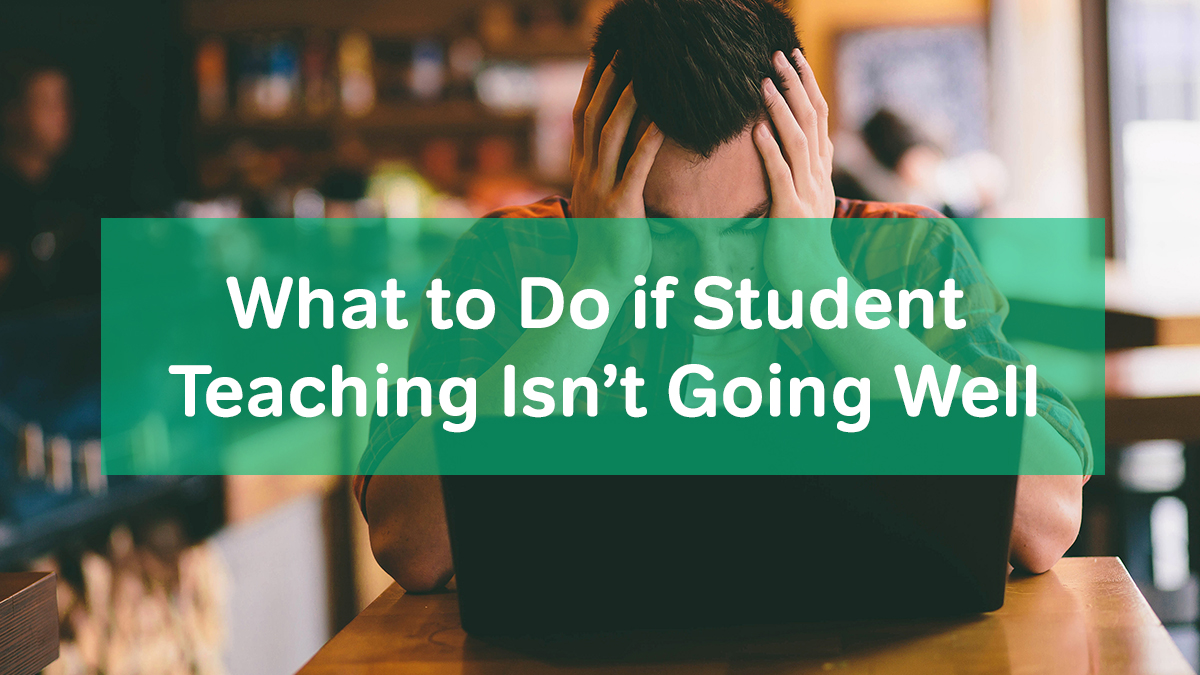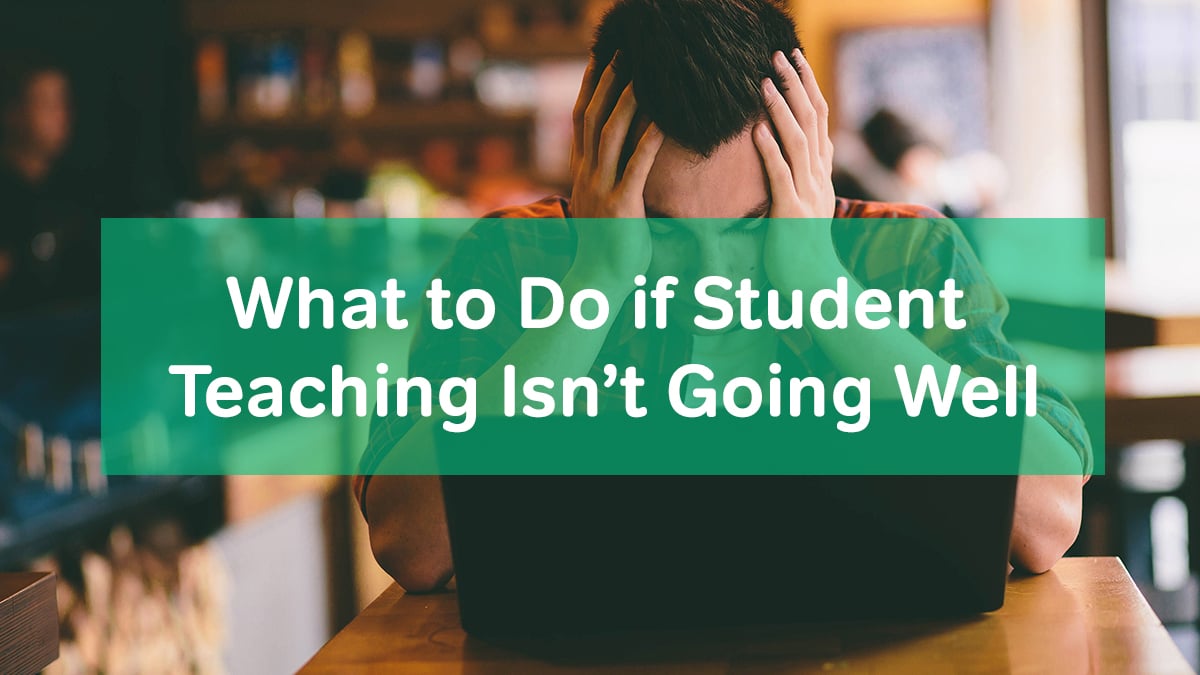
Student teaching is meant to be difficult, but some people have tougher experiences than others. They have unresponsive students, mentor teachers that aren’t willing to mentor them, or lessons that just bomb. When the tough moments continue to pile up, you might think about giving up or quitting. Before you do this, here are some things that you can try to improve a bad student teaching experience.

When student teaching isn’t going well, don’t give up without trying these tips.
Review Evaluations
Go back through your evaluations. Read any comments from your mentor teacher or university supervisor. If you have questions, sit down with them to go over how you’re doing. Ask about how you can improve and get better scores. Hopefully, they’ll work with you to help you make adjustments, so you have a better experience and become a better teacher.
Ask for a Second Opinion
Let’s say that your mentor teacher isn’t giving you fair reviews or enough constructive criticism to help you improve. If this is the case, consider asking someone else to come in and observe you. It could be someone from your university, an administrator, the department chair, dean, or another teacher in the school. Have them complete a review and give you constructive feedback to help you improve.
Cooperate with Your Mentor Teacher
Teachers have a hard time handing over the reins of their classroom. They know their students and they’re excited about the curriculum, so it’s difficult to step aside and let a student teacher take over. Whether this is the case or your personalities just clash, it’s important to look for ways to cooperate and work together.
Remember that as a teacher, you’re going to deal with lots of people that you don’t seem to get along without you need to figure out how to work around this. Begin your time student teaching as a helper. Try to gain the teacher’s trust so they feel more comfortable letting you take over.
If problems persist you should reach out to your university supervisor for suggestions. Keeping your university supervisor in the loop helps them understand why you’re struggling in student teaching. They may also have some insight into why your mentor teacher may be grading you lower than you deserve. Better yet, they may have suggestions to help alleviate this burden you’re facing.
Conduct Student Evaluations
If you’re struggling with your students, consider getting them involved to figure out how to improve. Students feel empowered when they get a voice in how and what they’re taught. So ask them what you’re doing well, what needs improvement, and any suggestions they may have. You could have them fill out an exit slip anonymously, or have your mentor teacher lead a discussion and give you the feedback later.
Get Acquainted with Faculty and Staff
If things aren’t going well with your mentor teacher, don’t let that destroy your experience. Take the time to get to know other faculty, staff, and administrators. Maybe you could find a different mentor to turn to when you have any questions or need advice. They can also vouch for you when you start looking for a teaching position.
Research!
Think about what you’re struggling with in your classroom. Are you having a hard time connecting with students, getting students involved in activities and discussions, or dealing with classroom management issues? Once you’ve pinpointed the issue, get to work. Check your class notes and textbooks for ideas. Browse the internet, contact former classmates, or email former professors.
Ask the right questions and do the research that you need to do, so you can find answers and gather ideas to help you improve. Then, try them in class. It might take some trial and error to figure out what works in the classroom, but don’t give up.
Student teaching is a small taste of what it will be like as a teacher. If things aren’t going well, it might be a good idea to reevaluate why you wanted to become a teacher and make sure that it’s still something that you’re interested in pursuing. If it is, take the necessary steps to work through the difficulties and look for ways to become the type of teacher that you want to be. For more tips on how to avoid a bad student teaching experience, check out my recent posts on Student Teaching Difficulties to Prepare For and Top Student Teaching Fears and How to Overcome Them.


